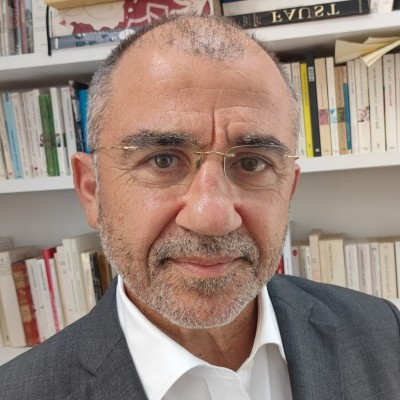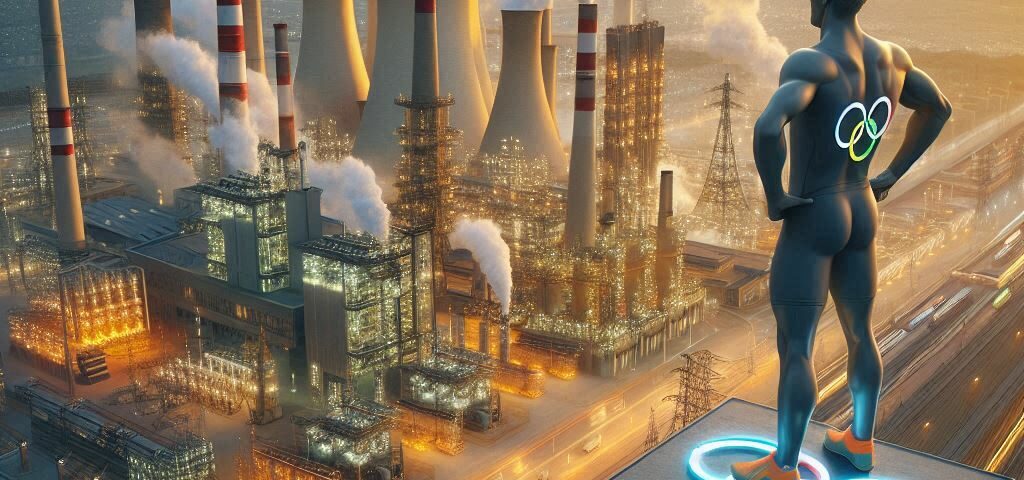The Olympic Games, Paris 2024, are now over. Does the undisputed success of the organization prejudge France’s ability to meet the daunting challenge of raising France?
Waiting for the Paralympics
Without exception, the French sports-political-financial sphere is congratulating itself on the success, not only of the organization, but also of the quality of the events and the French medals, even though it had little to do with it.
The real credit goes to the executives of the federations, the civil servants of the Ministries of Sport and the Interior, the local civil servants of the communes and regions, and the executives of the transport companies – SNCF, RATP, ADP and the airlines. They have demonstrated their ability to work together and to meet the most dauntingly complex challenges by implementing effective solutions.
Taking security as an example, the challenge was to control public spaces without creating the impression of a heavy police presence that would have detracted from the festive atmosphere. The skilful solutions found and implemented by our civil servants and technicians proved effective. They demonstrated that France is not China, and that security can be achieved while respecting our model of society based on Freedom.
The unions played along, believing that money justifies the delaying of demands, as did the political parties of the left and the right, who hardly spoke out to avoid going against the tide of a national fervor that many shared in front of their televisions. In fact, less than 1% of the world’s population, and less than 3% of the French population, had the privilege of actually attending these games. The fervor was massively relayed by the French media of all stripes, who never ceased to hammer home the French medal haul, casting a veil over those of other countries, notably the 4 countries ahead of France on the medal table.
We can legitimately ask ourselves whether these games were a celebration of sport or a celebration of national sentiment? It seems that the latter outweighs the former, and confirms the direction taken by previous elections. In any case, these games demonstrate a national sentiment with variable geometry, as witnessed by the variety of colors of the athletes in the different sports, reminding us that France is a worldwide Nation that cannot be reduced to the European hexagon. They could also indirectly advance certain debates, such as the one on immigration, which have been polluted by a narrow vision of the Nation.
France’s challenges
While the success of the Olympic Games demonstrated France’s indisputable capacities for organization, coordination and inventiveness, will they be mobilized to meet the challenges that France has so far put off? Not the least of these is France’s economic decline in Europe and the West, and the relocation of paracetamol factories will do nothing to change this. Indeed, the Olympic Games have made visible the difference in purchasing power between the French and their European neighbors that economic indicators such as GDP per capita have long been showing.
Global geopolitics has always rested on two pillars: armaments and technology. In the armaments sector, France boasts a fine industry whose only shortcoming is the difficulty of scaling up. When it comes to technology, we’re constantly going backwards, whereas in the 80s we were home to a number of European-class flagships. Have we forgotten that the personal computer was invented at Bull before IBM?
A little history. The ’70s marked a turning point in the French economy: to become more independent of energy raw materials, France turned to services and abandoned part of its industry. The deployment of nuclear power should have given an advantage to the chemical industries, which nevertheless failed to compete with German industries. Nuclear power mainly benefited households, the transport sector and automotive suppliers. This explains why the turnaround also marked a radical transformation in the French banking sector, which withdrew from long-term industrial risks and invested in the short-term risks associated with the service economy. This led to the development of universal banks in France, in contrast to Germany, whose banks remained attached to industry.
Since then, major French companies have entrusted their management to financiers, who have accelerated this trend. During his first seven years in office, François Mitterand did try to reverse the trend and force renationalized banks to support industrial projects. However, outside the hands of captains of industry, financial money cannot lead to lasting achievements. We all remember the painful Crédit Lyonnais scandal.
So, the essential and difficult point is the collaboration between visionary, capable industrialists and a banking sector organized to support them. Today, France lacks both, even if many contenders are making themselves heard. This challenge is far more difficult than the success of the Olympic Games. On a smaller scale, the same challenge faces EDF.
Now 100% state-owned, EDF has not changed its articles of association, but remains a limited company. Is this enough to explain the loss of the tender for the Czech EPR units? Some say so, because since the tender was launched, the French government has indicated its intention to launch a program of 6 EPR units, plus 8 optional units, to be carried out by the same EDF. We can also look at the company that won the tender, the South Korean energy giant KHNP. Korea is a country where, in many respects, industrial excellence has surpassed that of France. Just think of SAMSUNG, and industry accounts for 25% of GDP, compared with 17.5% in France.
It is likely that EDF is considering preserving its ability to ensure the financial side of this strategic industrial project for the country, in a political context where the government wants it to commit to moderate electricity supply prices. The financial aspect will be of no value without the industrial aspect, since the risks to be borne depend on it, and represent a major part of the costs of implementation. EDF has already launched a major transformation of its industrial and management processes. Will the success of the Olympic Games boost confidence in EDF’s ability to succeed in its transformation and become, as it had intended in the 2010s under the presidency of Henri Proglio, despite his short-sightedness about the resources to be mobilized, a world champion in nuclear power?
This would be a good thing, and a useful spin-off from the Olympic Games that would benefit French industry as a whole.

